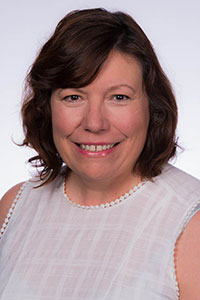
LOUISVILLE, Ky. — Dr. Misty Stutz, who joined Sullivan University’s College of Pharmacy in its first year of existence, has been named dean of the Sullivan University College of Pharmacy and Health Sciences.
Stutz replaces Dr. Cindy Stowe, who left Sullivan in 2019 to become dean of the University of Arkansas for Medical Sciences College of Pharmacy.
“I am thrilled to have the opportunity to lead the College of Pharmacy and Health Sciences as dean,” Stutz said. “I have been with Sullivan since the beginning of the PharmD program and seen it grow and flourish with the Class of 2020 being our 10th group of PharmD graduates. In my new role as dean, I hope to reconnect with former students, strengthen collaborations with our community partners, and seek out new opportunities to continue to be a part of the fabric of healthcare in our region and throughout the Commonwealth of Kentucky.”
Stutz is a 1988 graduate of the University of Cincinnati College of Pharmacy. She received her doctor of pharmacy from the University of Kentucky in 2002. She has over 20 years in community-based pharmacy practice and has been at Sullivan University since 2008. Stutz has served several roles at the college, the most recent as department chair of clinical and administrative sciences.
“It has been my privilege and honor to work with Dr. Stutz throughout her entire 11 year career with Sullivan University,” said Sullivan University President and CEO Dr. Jay Marr. “Time after time she has proven herself a highly competent and skilled educator, administrator and practitioner, and we are extremely lucky to have her as the new leader of the College of Pharmacy and Health Sciences.”
“Her collaborative, inclusive approach will bring renewed energy to the doctor of pharmacy, master’s in physician assistant and pharmacy technician programs,” Marr said. “The admiration and support for Dr. Stutz, evidenced through the selection process, confirms wide and substantial support for and confidence in her as she takes on the challenge of leading the college forward.”
Stutz said her first priority as dean will be to continue and advance collaboration between the physician assistant and doctor of pharmacy programs.
“We officially merged in 2018 and have worked to integrate operations, but there are still a lot of opportunities for synergy,” Stutz said. “We will also be launching a new master of science program in July. This will be a one-year residency-like experience complimented with a MS in pharmacists care delivery and systems thinking. This is a great addition for a PharmD or BS graduate that would like post-graduate training.”
Stutz said the Center for Health and Wellness will continue to be a driving force in educating pharmacists to practice at the top of their license.
“Many initiatives are underway, including public health initiatives, that utilize the skills of pharmacists in the health and wellness of patients,” she said. “Our goal is to empower not only our students, but our pharmacist colleagues to be equipped to practice in the ever changing world of pharmacy.”
On a broader scale, Stutz said the education of today’s pharmacist is to manage medication therapy.
“This means that a pharmacist is the member of the health care team especially equipped to manage difficult medication regimens or patients with multiple disease states,” Stutz said. “Pharmacists are keenly aware of how medications work within the body and can help prescribers make decisions on the best medication therapy.”
Sullivan offers an accelerated program that allows students to begin their careers earlier.
“Sullivan University offers students an experience that is unparalleled,” Stutz said. “Faculty are not only experts within their field but put the education of the students front and center. They look to both traditional and nontraditional education modalities, employing the use of technology to enhance learning throughout the curriculum. They are also active in their profession and encourage students to advocate for themselves and their patients.”




















Add Comment